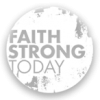I used to be the person who said “yes” to everything. It came from a good place—I wanted to be helpful and if someone needed me, it seemed best to come through for them.
More often than not, I’d say yes too many times and either wouldn’t fulfill my part as well as I wanted or stress out about it. I’ve since learned the value of quality over quantity and try and limit what I say yes to. Not because I don’t want to help, but so I can give my best work to everything I do.
But it wasn’t an easy lesson.
By the end of my second year of university, I was so overloaded and overwhelmed I became paralyzed with indecision. What should I work on? Everything needs to be done now! And I have to work/have homework/have tests to study for/have to help with this thing…all at the same time.
In these moments, I’d panic and shut down. Rather than digging in and pushing through, I would withdraw and let everyone (including myself) down. I knew this wasn’t the right (or the healthy) approach but I didn’t know what else to do.
One day, as I complained about how stressed out I was, a friend suggested I put all my deadlines and commitments into a calendar so I could get a better idea of how to prioritize my workload. To be honest, I didn’t think it would work. But without any other options (other than shutting down and failing out of university) I gave it a try.
I went through my course outlines and wrote the dates my projects were due and exams were planned. I highlighted them blue. Then, I looked at my work schedule and wrote in my hours. Those were highlighted pink. Last, I noted all the volunteer activities and highlighted those yellow.
Looking at my calendar, I saw a busy six weeks ahead of me. But I also saw gaps. So I scheduled studying and highlighted those times green. Now I couldn’t say yes to anything else—my calendar was full. I felt a twinge of guilt but not for long. Now I had boundaries and priorities to keep me focused and productive.
Since then I’ve developed a strategy to avoid being overwhelmed, although I still over-commit from time to time. I follow these four steps.
- Keep a schedule. Everything big and small goes into my calendar. Then it’s out of my head and I don’t have to worry about remembering it. I’ve learned when it’s not in my schedule it doesn’t get done. And that includes everything from picking up milk to meeting writing deadlines. Put it in the calendar
- Don’t say “yes” until checking my schedule
- When I feel overwhelmed it’s a sign that I’m too busy—time to get away by myself and think, and make sure I’m eating right, exercising enough, and getting enough sleep
- Only do what I can do—if someone can do it better, step back
In everything I do, I want to bring Colossians 3:23 to life. “Work willingly at whatever you do, as though you were working for the Lord rather than for people.”















